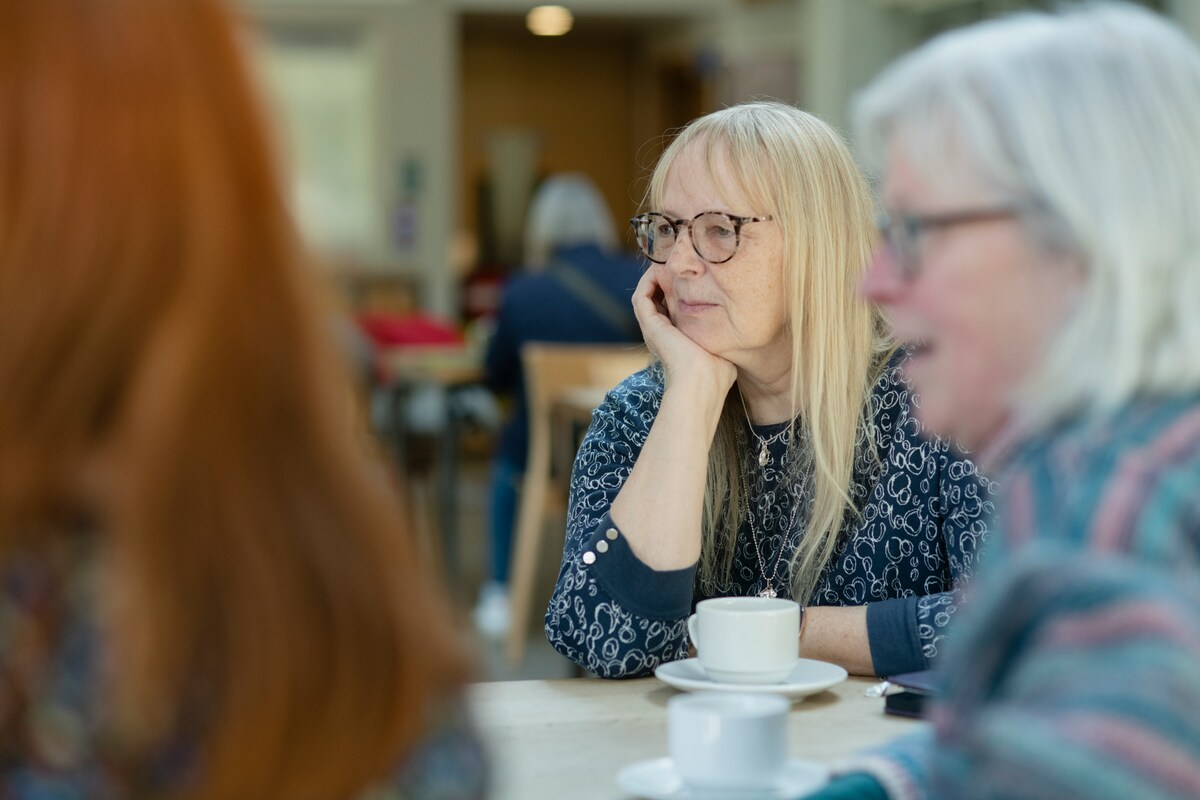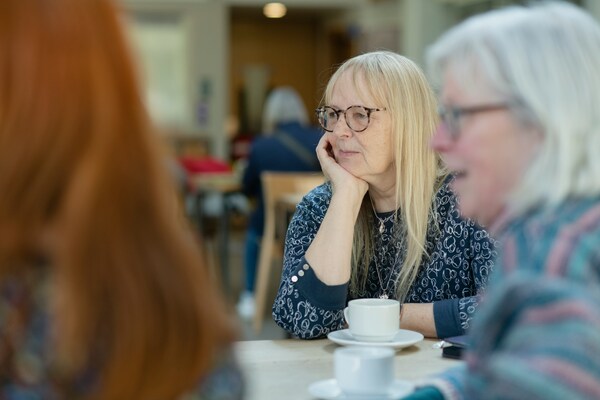
Aphasia is a little known and often misunderstood common medical condition. It also affects a large number of people.
In fact, some 350,000 people in the UK have aphasia, with stroke the most common cause… but very few people seem to know about it unless it has affected them directly and many find it difficult to know how to communicate with someone living with the condition.
That can make it challenging to socialise, shop or even go back to work.
And while everyone’s aphasia is “different” in how it impacts the individual and to what degree their communication skills are affected, it frequently leads to anxiety, depression and a loss of confidence,
There is no simple “cure” either. People’s personal stroke journey can see their symptoms disappear in days, improve over time… or remain the same for years or their lifetime: in fact, it is extremely rare for people to make a full recovery, and almost all will find some changes to their communication for life.
But there is something everyone with aphasia can do to improve their situation – at least, if they live in Bristol or South Gloucestershire! And that’s to join one of the six different groups run by Bristol After Stroke that meet up around area – either on a fortnightly or monthly basis.
The groups are informal, friendly, supportive and understanding… after all, everyone there will know exactly what you are personally going through!
Groups can vary in size from a handful of regular members up to a dozen or more. But what is it like to attend one? We asked members of the Yate, Thornbury and Longwell Green groups what attending means to them… and why anyone anxious about coming along has no reason to feel nervous!
What they said:
“I found it’s been a lot of support.”
“It's a social life, social connection.”
“It's improved my confidence.”
“Everyone's in the same boat.”
“I got my speech back quick quickly, although I've still got problems with names.”
“It's made a big, big difference in my confidence. Yeah… and not worrying about the lost words.”
“I can remember one member saying, ‘There's a lot of us here who've been living with this over ten years. You're only eight months into it. You can't expect everything to happen quickly.’ They were wise words that made a big impact.”
“You find out more things from other people than you do from your doctor or hospital.”
“It's reassuring because you can ask a question and not feel silly.”
“If we didn't come to this group we'd be quite isolated in our own little world… now we’re part of a new group as well.”
“Here you don't have to explain yourself if you forget a word or if you're slow or choose the wrong word. You're not judged.”
“It just feels like, ‘I'll say what I've got to say.’”
If someone has had a stroke and is hesitant about coming along, what would your advice be?
“I would say, yeah, yeah. Come along.”
“It's not just about aphasia. It's all the little life tips you get as well from people who’ve lived through it.”
I didn't think it would help me, but actually it did - because I got a lot more confidence from it.”
“The first day I came, I said, I don't think this is the right place for me. Now you can't beat me off with a stick. Because everybody was so so nice, so welcoming.”
“I didn’t want to come but when I met the speech therapist and group members I quickly changed my mind”
“Come – it will improve your speech”
“Don’t assume you’ll be different: join the conversation group family: it’s safe & friendly”
“The speech therapist and people with aphasia listen – not like people outside”
“Don’t be embarrassed – everyone’s in the same boat”
“There’s a great age range: 50 to 92.”
“I’m so glad I was brave enough to try out the group.”
Check out your nearest group!
If YOU have aphasia, why don’t you come along to one of our groups? Ask your Stroke Coordinator for details: you’ll be given the warmest welcome!
South Gloucestershire (Groups led by a specialist speech therapist)
Longwell Green Community Centre, second and fourth Tuesdays between 1.30 and 3.00pm
Thornbury (The Chantry) first, third (and fifth) Tuesdays, between 10.30 am and 12pm
Yate, Ridgewood Community Association, second and fourth Tuesdays between 10.30am and 12pm
Bristol (Drop-in Conversation / Communication groups, led by a BAS Stroke Co-ordinator)
Virtual Aphasia Group (Zoom), every other Wednesday between 1.30pm and 2.30pm
Zion Communication Café, BS13, first Wednesdays between 10.00 and 11.30am
The Nest Communication Café, BS16, fourth Thursdays between 1.00 and 2.00pm
Photo by Age Cymru on Unsplash





